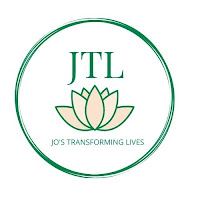What is Nutritional Wellbeing
Nutritional Wellbeing
Improving your Nutritional wellbeing, can transform your life, I prefer to call our nutritional journey as a healthy eating plan. I feel over the years the word diet as been attached to failure. FAIL is the First Attempt In Learning.
I heard people say "Oh I shouldn't eat this I am on a diet" If we deprive ourselves we will crave the food. So a rule of a 80/20 split is the ideal, 80% healthy and 20% treats.
Why is it important to have a healthy eating plan?
It is important to have a healthy eating plan to reduce your risk of chronic disease according to harvard, not eating healthily can increase your risk of diabetes, heart disease, stroke and cancer Disease Prevention | The Nutrition Source | Harvard T.H. Chan School of Public Health
In this blog we will explore how you can reduce your risk of chronic disease.
What is considered an healthy eating plan?
Having an healthy eating plan involves ensuring your body receives the right nutrients to ensure it can function to its optimum.
Remember food is our bodies fuel and if we eat the wrong type of fuel our body will struggle and this will cause diseases to appear.
The following is required to allow you to achieve a healthy eating plan.
- Protein
- Fruit and Vegetables
- Dairy
- Fats
- Carbohydrates
Why are these important for our body?
Protein - is an important source for your body, it allows you to reduce hunger and appetite, reduces cravings at night, boosts metabolism which
increase fat burning, increase muscle mass and strength, maintains weight loss, is good for your bones, lowers your blood pressure and helps your body repair itself.
Fruit and vegetables - are a good source of vitamin and minerals and includes fibre which helps
with a healthy gut this can prevent constipation and other digestive problems and
reduces the risk of Bowel cancer.
Dairy - Keep muscles, bones, nerves, teeth, skin and
vision healthy. Release energy from foods and reduce tiredness and fatigue. It helps to maintain
healthy blood pressure and support normal growth, brain development and even
support normal immune functioning. There are alternatives to dairy for people who are lactose intolerance.
Fats - There are good fats and bad fats - to achieve an healthy diet the aim is to reduce the bad fats known as saturated fats that are found in both sweet and savoury, it fatty cuts of meat, meat products, including sausages
and pies, butter, ghee, and lard, cheese, especially hard cheese
like cheddar cream, soured cream, ice cream, some savoury
snacks, like cheese crackers, some popcorns, chocolate confectionery, biscuits,
cakes, and pastries. Some oils such as palm oil, coconut oil and coconut cream.
Carbohydrates - are
your body's main source of energy: They help fuel your brain, kidneys, heart
muscles, and central nervous system. For instance, fibre is a carbohydrate that
aids in digestion, helps you feel full, and keeps blood cholesterol levels in
check. Reducing your white carbohydrates and sugar sweetened drinks can help you reduce your risk of Type 2 diabetes.
Portion sizes are important also which I will cover in a future blog.
I once had a BMI of 29 because I hate the wrong foods, I knew they were but due to my lifestyle I just ate them. Once I acknowledged and took responsibility for the part I played in my problems I was able to change my life around. I now follow an healthy eating plan and my BMI is 20.41, all my bloods are normal and my blood pressure is normal.
If your goal is to improve your nutritional wellbeing to become healthier and you would like support, please arrange a call and we can see if how we can start you on your journey to achieve this.
Check out this guide from Harvard https://www.hsph.harvard.edu/nutritionsource/2021/01/19/healthy-living-guide-2020-2021/
If you want support to improve your nutritional wellbeing, book a free 30 minute call
with Jo click the link Book the call to set your goals





Comments
Post a Comment